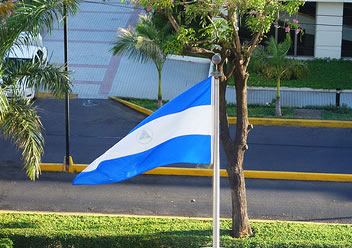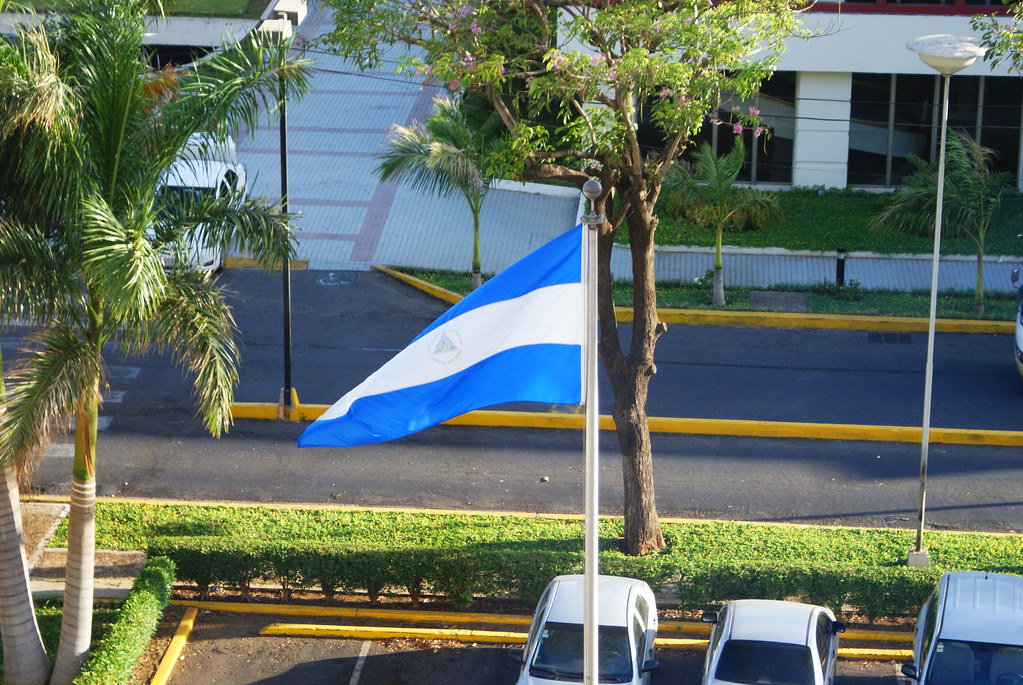
April 27 - 29, 2009 | Parliament of Nicaragua, Managua
Upon invitation of PGA Nicaraguan members Dip. Alba Palacios (FSLN), Dip. Jose Pallais (PLC) and Dip. Agustin Jarquin (PDC), a delegation of Parliamentarians from Latin America, Sen. Maria Cristina Perceval (Argentina, Convenor of the PGA International Law and Human Rights Program), Dip. Tucapel Jimenez (Chile) and Dip. Jhannet Madriz (Venezuela), met in Managua with party groups represented in the National Assembly and the Central American Parliament as well as with judges from the Supreme Court and the Central American Court in an effort to advance the process of Nicaragua's accession to the Rome Statute ahead of the upcoming Review Conference of the Rome Statute to be held in mid-2010 in Kampala, Uganda.
The PGA Delegation was accompanied by Ambassador Christian Wenaweser (Permanent Representative of Liechtenstein to the UN), President of the Assembly of States Parties to the Rome Statute, who shared the progress made up to date on the definition on the crime of aggression, a matter of historical significance to Nicaragua.
The delegation emphasised in its visit the non-retroactive, complementary to national jurisdictions and independent nature of the Court, which was created to prevent and punish international crimes committed after the Statute's entry into force. In line with Nicaragua's new Criminal Code and Constitution, Nicaragua was urged to support the end of impunity for international crimes and the current operations of the ICC worldwide.
The delegation was received by four of the five party groups represented in the National Assembly as well as by its Speaker. The delegation was met with positive interest and support on the matter of accession to the Rome Statute, which reflected a cross-party support to join the ICC. This support was also expressed by the members of the Central American Court of Justice.
The FSLN party group (majority), however, pointed out to the need, in parallel to accession, to withdraw from any additional instruments that may affect the integrity of the Rome Statute, including a non surrender agreement of nationals that was signed in 2003 with the United States. On their part, members of the Supreme Court pointed out to additional legal obstacles, among others, the constitutional limits to the extradition of nationals and other safeguards for the accused. PGA members in Nicaragua and Latin America remained committed to sharing technical assistance and political dialogue in order to facilitate the work of law-makers and other decision-makers on the Rome Statute's accession dossier.
While the prerogative to initiate the accession process is of the Executive Branch, the PGA delegation was met with assurances that the required steps, including engaged dialogue among all stakeholders, will continue, especially in light of the imminent deadline to join the Rome Statute in the coming 8 months in order to participate actively in the Review Conference.
In addition to the consultations, the PGA Delegation and Ambassador Wenaweser participated at a university forum in Universidad Centroamericana attended by nearly 80 law students, as well as in two television news shows. This project received extensive media coverage, as detailed in the below list of media outlets.


